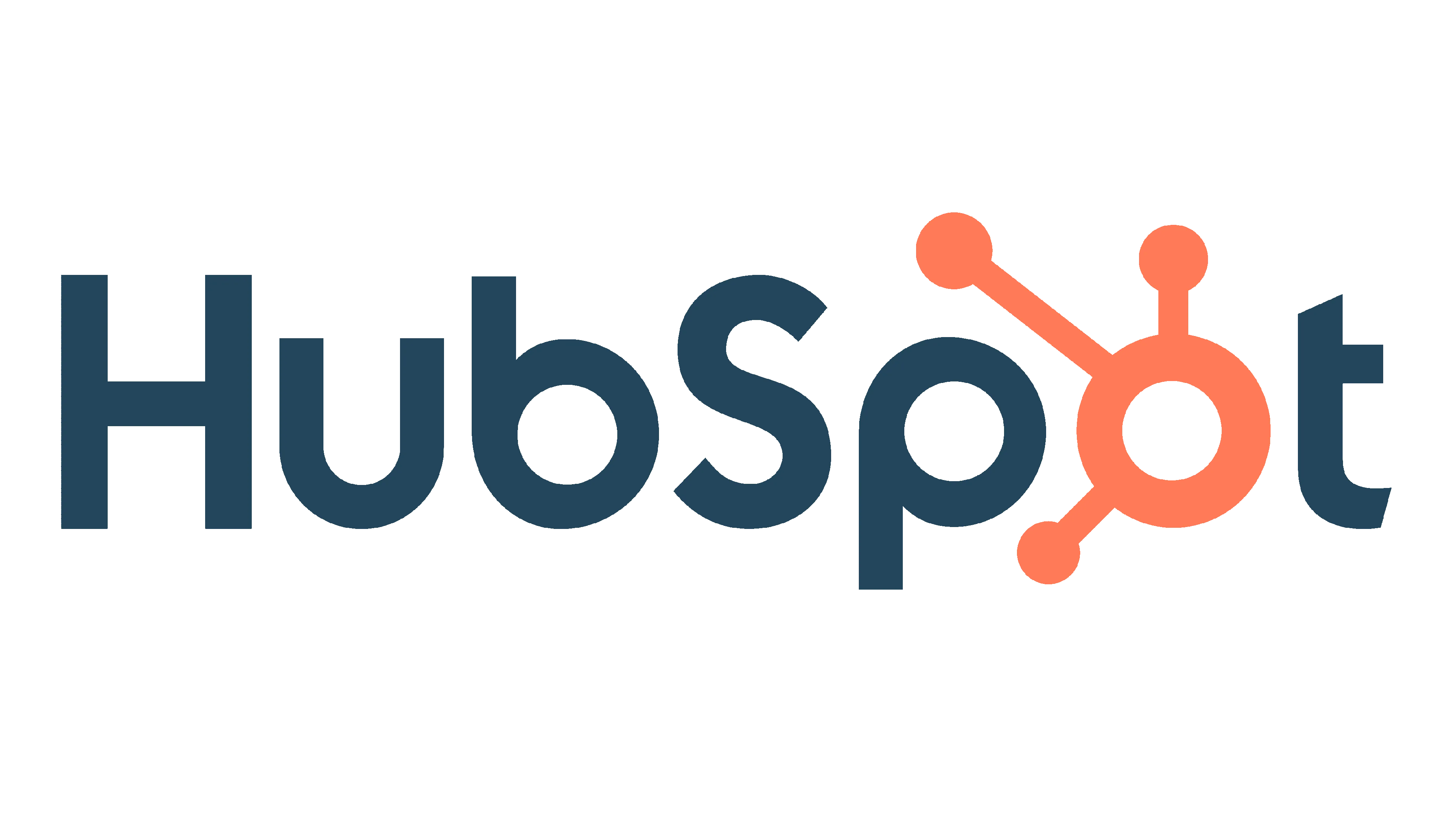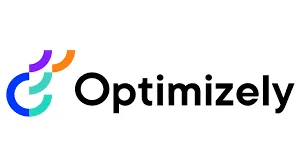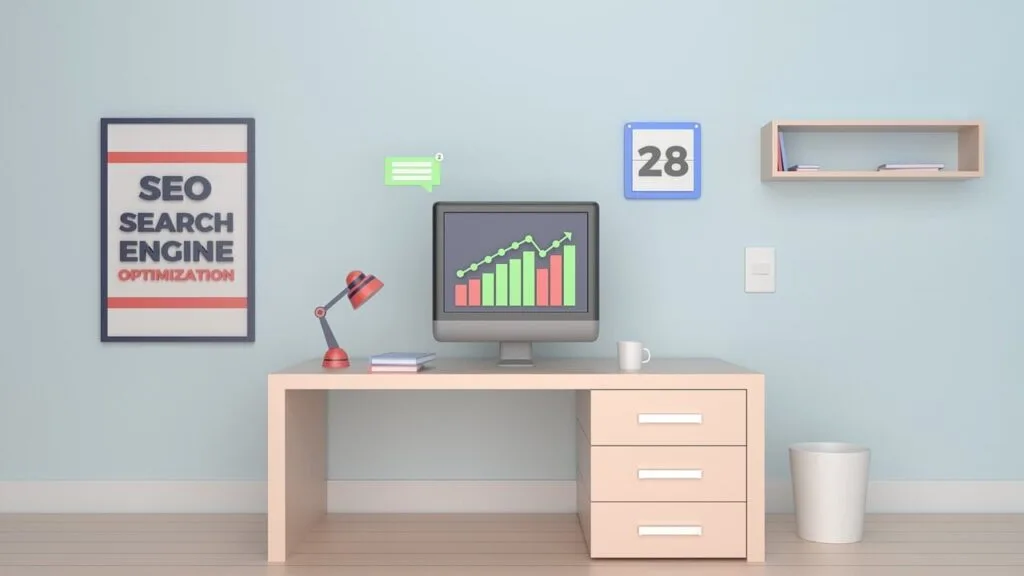Choosing the right marketing analytics tool is like picking the perfect ally in the quest to conquer your market. With the digital landscape evolving faster than ever, making informed decisions isn’t just nice to have; it’s crucial. Among the champions in this arena are HubSpot Marketing Analytics and Optimizely. Both powerhouses in their own right, but which one will be the best sidekick for your journey? Let’s dive into their worlds, dissect their strengths, and help you decide.
| HubSpot Marketing Analytics | Optimizely |
|---|---|
 |  |
| G2 Score – 4.4 out of 5 stars | G2 Score – 4.5 out of 5 stars |
| TrustRadius Score – 8.5 out of 10 | TrustRadius Score – 8.7 out of 10 |
User Experience and Interface
The gateway to any tool’s effectiveness is how well you can navigate its universe. User experience and interface (UX/UI) aren’t just about pretty screens; they’re about how efficiently you can perform tasks, uncover insights, and make data-driven decisions without needing a decoder ring.
HubSpot Marketing Analytics: A Look Inside
HubSpot is known for its intuitive design and user-friendly interface. Navigating through HubSpot’s dashboard feels like a walk in the park. Even if you’re new to the marketing analytics landscape, HubSpot welcomes you with open arms, ensuring you don’t get lost in a maze of data. Its dashboard is clean, with data visualizations that make metrics easy to understand at a glance.
The beauty of HubSpot’s UX/UI lies in its holistic approach. It’s not just a tool; it’s a hub (pun intended) where every piece of your marketing puzzle comes together. Whether you’re tracking website performance, email marketing campaigns, or social media engagement, HubSpot places all your analytics in one cohesive environment. This seamless integration means you spend less time jumping between tools and more time crafting strategies that win.
Optimizely: Entering the Experimentation Arena
Optimizely, on the other hand, takes you into the heart of experimentation. It’s built for those who love to test, tweak, and optimize every corner of their digital presence. The platform might seem daunting at first, especially if you’re new to the concept of A/B testing and experimentation. However, once you familiarize yourself with its layout, Optimizely unveils its power as a precision tool for enhancing user experience and conversion rates.
Optimizely’s dashboard is a command center for experimentation. It allows you to set up tests with ease, analyze results in real-time, and make data-backed decisions on what changes to implement. The platform’s strength lies in its detailed analytics that drill down into how different variables affect user behavior. While it offers a steep learning curve, the insights gained from using Optimizely can be game-changing for businesses focused on optimizing every aspect of their customer journey.
Making the Call: HubSpot or Optimizely?
Choosing between HubSpot Marketing Analytics and Optimizely boils down to what you value more: a user-friendly interface that brings all your marketing data under one roof, or a powerful experimentation platform that pushes the boundaries of how you engage with your audience. HubSpot is your go-to if you’re looking for an all-in-one solution that’s easy to navigate and understand. On the flip side, if you’re all about maximizing conversions through rigorous testing, Optimizely will be your battlefield of choice.
The decision is not about which tool is superior; it’s about which tool aligns with your marketing philosophy and goals. As you weigh your options, consider the journey ahead and the kind of ally you need to conquer your market.
Integration and Ecosystem Compatibility
Your marketing stack is like a symphony orchestra, with each instrument playing a vital role in the overall performance. The conductor, in this case, your chosen marketing analytics tool, must ensure that each section integrates harmoniously to create a masterpiece.
HubSpot Marketing Analytics: The Harmonious Hub
HubSpot has long been celebrated for its integration capabilities. It’s like the maestro of a well-tuned orchestra, ensuring seamless communication between different sections. With native integrations across a wide array of platforms — from CRM systems like Salesforce to social media tools like LinkedIn, and email marketing platforms such as Mailchimp — HubSpot ensures that data flows smoothly across your marketing channels.
The platform’s strength lies in its HubSpot ecosystem, a suite of tools covering marketing, sales, service, and operations. This integrated approach means data collected in one area can easily inform strategies in another, without the need for complex data migrations or third-party integrations. For businesses looking for a unified solution that minimizes compatibility issues, HubSpot stands out as a comprehensive choice.
Optimizely: The Specialist in Experimentation
Optimizely’s approach to integration focuses on its core strength: experimentation and optimization. While it may not offer the broad integration landscape of HubSpot, it shines in how it complements specific tools within the marketing and development tech stacks. Optimizely integrates with analytics platforms like Google Analytics, content management systems (CMS) such as WordPress, and even customer data platforms (CDPs) like Segment.
This targeted integration approach allows Optimizely to enhance the capabilities of these platforms by adding a layer of experimentation and optimization. For example, by integrating with Google Analytics, Optimizely enables marketers to directly correlate test results with broader site metrics. This specialization makes Optimizely an invaluable tool for teams focused on continuously testing and improving their digital experiences.
The Integration Verdict: Broad vs. Deep
When it comes to integration and ecosystem compatibility, the choice between HubSpot and Optimizely reflects a broader strategic decision: do you value a broad, all-encompassing integration network that brings all your marketing activities under one roof, or do you need deep, specialized integration that enhances specific aspects of your marketing strategy?
HubSpot is the go-to for businesses seeking an integrated marketing solution with extensive native support for a wide range of tools and platforms. Its all-in-one nature simplifies data management and strategy execution across the full marketing spectrum.
Optimizely, meanwhile, is ideal for businesses that prioritize depth over breadth. Its focused integration capabilities make it a powerful addition to a tech stack centered around continuous improvement and optimization of digital experiences.
Choosing between these paths depends on your current tech stack, your strategic priorities, and how you envision your marketing operations evolving. Both paths offer distinct advantages, but the right choice will align with your broader marketing philosophy and objectives.
Data Analysis and Reporting Capabilities
In the quest to dominate the digital marketing landscape, the treasure trove of data at your disposal can either be a guiding star or an overwhelming fog. The ability of a marketing analytics tool to not just gather but also intelligently analyze and report this data is what separates the captains of industry from the rest. Let’s delve into how HubSpot and Optimizely handle this critical task.
HubSpot Marketing Analytics: Insightful Navigator
HubSpot Marketing Analytics prides itself on offering comprehensive, yet digestible insights into your marketing campaigns. It’s like having a wise navigator aboard your ship, capable of reading the stars and the seas with equal proficiency. HubSpot’s reporting dashboard is a testament to this, providing a clear, unified view of your marketing performance across various channels.
From website traffic and conversion rates to email open rates and social media engagement, HubSpot aggregates data and presents it in easy-to-understand reports and dashboards. These tools are not just about displaying numbers; they’re about offering insights. With customizable reports, you can drill down into the metrics that matter most to your business, identifying trends, patterns, and opportunities for optimization.
Furthermore, HubSpot’s integration with its CRM platform enables a seamless flow of data between marketing and sales, offering a 360-degree view of the customer journey. This level of analysis helps businesses not just track but truly understand their audience, making every marketing decision data-driven.
Optimizely: The Experimentation Maestro
Optimizely approaches data analysis and reporting with a laser focus on experimentation and optimization. Think of it as the maestro of a finely-tuned orchestra, where every note and nuance is scrutinized for perfection. Optimizely provides detailed insights into how different variations of your digital experiences impact user behavior and conversion rates.
With its robust A/B testing and multivariate testing capabilities, Optimizely goes beyond traditional analytics to offer actionable insights on what works best on your site or app. The platform’s reporting tools are designed to highlight the statistical significance of your experiments, making it clear which variations are outperforming others and why.
Optimizely’s strength lies in its ability to not just report on past performance but to predict and influence future outcomes. By continuously testing and optimizing, you can ensure that your digital properties are always evolving to meet and exceed user expectations. This proactive approach to data analysis empowers businesses to make informed, evidence-based decisions.
Analyzing the Analytics: HubSpot vs. Optimizely
When it comes to data analysis and reporting capabilities, the choice between HubSpot and Optimizely hinges on your strategic focus. If you’re looking for a holistic view of your marketing efforts, with insights that span across channels and integrate with sales data, HubSpot is your beacon. Its comprehensive analytics platform is designed to illuminate your path to success with clarity and precision.
On the other hand, if your strategy is centered on optimizing digital experiences through continuous experimentation, Optimizely is your compass. Its specialized analytics tools provide the detailed, actionable insights needed to refine and perfect every element of your digital presence.
Ultimately, both HubSpot and Optimizely offer powerful data analysis and reporting capabilities, but the right tool for you depends on where you see the greatest opportunity for growth and improvement in your marketing strategy.

Related: Check out our free SEO suite

Pricing and Value for Money
The cost of your marketing analytics tool is not just an expense; it’s an investment in your business’s growth. But like any investment, it needs to make financial sense, offering a balance between the features and benefits it provides and the price it commands. Let’s dive into how HubSpot and Optimizely stack up in terms of pricing and the value they deliver.
| HubSpot Marketing Analytics | HubSpot’s pricing varies by package, with the Marketing Hub starting at $45 per month for the Starter package, $800 per month for the Professional package, and $3,600 per month for the Enterprise package. |
| Optimizely | Optimizely does not publicly list detailed pricing for its services, including experimentation and personalization products. Interested parties must contact them directly for a custom quote. |
HubSpot Marketing Analytics: A Cost-Effective Compass
HubSpot is renowned for its comprehensive suite of marketing tools, and its pricing structure is designed to cater to businesses of all sizes. The platform offers a unique advantage with its free CRM and a selection of free tools, making it an attractive option for small businesses or those just starting on their digital marketing journey.
As you ascend the tiers, from Starter to Professional and then to Enterprise, the cost increases, but so does the depth of features and capabilities. Each tier is designed to match the growing needs of businesses as they scale, offering more sophisticated analytics, automation, and customization options. HubSpot’s transparent pricing model makes it easy for businesses to predict their expenses and gauge the ROI they can expect from their investment.
Moreover, the value of HubSpot extends beyond its analytics capabilities, offering a unified platform for inbound marketing, sales, and customer service. This holistic approach not only streamlines operations but also amplifies the impact of each marketing dollar spent.
Optimizely: Precision Experimentation at a Premium
Optimizely’s pricing model is more opaque, with custom pricing that varies based on the features and scale of usage. Known for its advanced experimentation and optimization features, Optimizely is often considered a premium option, especially suited for medium to large businesses or those with a high focus on optimizing digital experiences.
The platform’s focus on detailed A/B testing, multivariate testing, and personalization means that businesses can expect a high level of sophistication and precision in their optimization efforts. While this might come at a higher cost compared to some entry-level options, the potential for significantly improving conversion rates and customer experiences can justify the investment for businesses prioritizing these areas.
Optimizely’s value proposition is centered on its ability to drive tangible improvements in digital performance. For businesses that are data-driven and experimentation-focused, the insights and optimizations derived from Optimizely can lead to substantial increases in ROI, making the premium for its services a worthwhile investment.
Weighing the Investment: HubSpot vs. Optimizely
Deciding between HubSpot and Optimizely from a pricing and value perspective involves assessing your business’s specific needs and growth stage. HubSpot offers a scalable solution that grows with your business, providing a wide range of tools and functionalities at each pricing tier. Its value is amplified by the synergies across its marketing, sales, and service hubs, making it a cost-effective choice for businesses looking for an all-in-one platform.
Optimizely, with its focus on experimentation and optimization, is ideal for businesses that have specific goals around improving digital experiences and are willing to invest in a premium solution to achieve these objectives. The potential for high ROI through optimized conversion rates and enhanced user experiences can make Optimizely’s custom pricing a valuable investment for the right businesses.
Ultimately, the choice between HubSpot and Optimizely in terms of pricing and value for money should align with your business’s strategic priorities, budget, and desired outcomes from your marketing analytics tool.
Customer Support and Educational Resources
The journey with a marketing analytics tool is filled with learning curves and moments requiring guidance. The quality of customer support and the availability of educational resources can greatly enhance user experience, ensuring you’re never left stranded.
HubSpot Marketing Analytics: Empowering Users with Knowledge
HubSpot has earned a reputation for its exceptional customer support and a wealth of educational resources. The platform provides support through multiple channels, including email, phone, and live chat, ensuring users can get help in the way that suits them best. The responsiveness and expertise of HubSpot’s support team are often highlighted by its users, offering peace of mind that help is just a message away.
Beyond direct support, HubSpot excels in offering a comprehensive suite of educational resources. The HubSpot Academy is a treasure trove of knowledge, featuring courses, certifications, and training videos covering various aspects of digital marketing, sales, and customer service. These resources are not just limited to teaching you how to use HubSpot’s tools; they aim to enhance your overall marketing skills and strategies. This commitment to user education ensures that businesses can grow their expertise as they grow their use of the platform.
Optimizely: Dedicated Support for Experimentation Excellence
Optimizely, focusing on experimentation and optimization, extends its niche to the way it handles customer support. Support is provided to users through dedicated account managers, email, and an online help center. Optimizely’s approach to customer support is tailored, focusing on providing specialized assistance that aligns with the complex nature of A/B testing and personalization strategies. This means users can expect to receive not just technical support but also guidance on best practices for experimentation.
In terms of educational resources, Optimizely offers a variety of documentation, webinars, and a community forum designed to help users get the most out of their experiments. While these resources are rich in content and valuable for users looking to deepen their understanding of experimentation strategies, the focus is more specialized compared to the broad-based education provided by HubSpot.
Support and Education: A Critical Comparison
When it comes to customer support and educational resources, both HubSpot and Optimizely demonstrate a strong commitment to empowering their users, albeit with different focuses. HubSpot offers broad-based learning and a variety of support options suitable for businesses seeking to enhance their overall digital marketing prowess. Its HubSpot Academy stands out as a leading resource for not just HubSpot users but for anyone looking to improve their digital marketing skills.
Optimizely, on the other hand, offers more specialized support and resources focused on optimization and experimentation. This is incredibly valuable for businesses that are specifically focused on these areas and can benefit from the depth of knowledge and tailored support Optimizely provides.
Choosing between HubSpot and Optimizely in terms of customer support and educational resources ultimately depends on your business’s specific needs. If you value a wide array of learning opportunities and diverse support options, HubSpot might be your ideal choice. If specialized support and detailed resources on experimentation are what you seek, Optimizely could be the better fit.
Innovation and Future-Proofing
Staying competitive in digital marketing means not just keeping pace with current trends but also anticipating and adapting to future changes. A marketing analytics tool that invests in innovation ensures that your marketing strategies remain effective and relevant. Here’s how HubSpot and Optimizely fare in their commitment to innovation and preparing users for the future.
HubSpot Marketing Analytics: Leading with a Forward-Thinking Approach
HubSpot has consistently demonstrated a commitment to innovation, frequently updating its platform with new features and capabilities that reflect the latest marketing trends and technologies. From incorporating artificial intelligence and machine learning for smarter analytics and automation to expanding its suite of tools to cover emerging channels and techniques, HubSpot ensures its users are well-equipped to tackle modern marketing challenges.
Moreover, HubSpot’s philosophy of “inbound marketing” — attracting customers through content and interactions that are relevant and helpful — is a testament to its forward-thinking approach. As digital marketing evolves towards more personalized and user-centric strategies, HubSpot’s platform is designed to adapt and thrive in this changing environment. This commitment to innovation not only keeps users on the cutting edge but also prepares them for future shifts in consumer behavior and marketing best practices.
Optimizely: Pioneering Experimentation for Tomorrow
Optimizely’s core mission revolves around experimentation, and this focus inherently drives continuous innovation. The platform is at the forefront of developing advanced testing, personalization, and optimization tools that allow marketers to precisely tailor their digital experiences to meet the evolving expectations of their audiences. Optimizely’s investment in features like dynamic experimentation and AI-powered personalization signifies its dedication to providing users with the tools needed to innovate and excel.
The platform’s commitment to helping businesses experiment more effectively positions its users to quickly adapt to new trends and technologies. By fostering a culture of testing and data-driven decision-making, Optimizely ensures that businesses are not just reacting to changes in the digital landscape but are proactively experimenting with new approaches to stay ahead of the curve.
Future-Proofing Your Marketing Strategy
When it comes to innovation and future-proofing, both HubSpot Marketing Analytics and Optimizely offer compelling visions. HubSpot provides a broad, integrated platform that evolves with the latest marketing trends and technologies, ensuring businesses have a comprehensive toolset for inbound marketing. In contrast, Optimizely focuses on enabling businesses to lead with experimentation, equipping them with cutting-edge tools to optimize digital experiences continually.
The choice between HubSpot and Optimizely in this context hinges on your strategic priorities. If you value a broad and integrated approach to marketing that continuously adapts to the latest trends, HubSpot is an excellent choice. If your focus is on leveraging experimentation to drive innovation and adaptability in your digital marketing efforts, Optimizely stands out as the pioneer in this space.
Both platforms are committed to keeping their users at the forefront of digital marketing innovation, but the right tool for you will align with your vision for the future of your marketing strategy.
Conclusion
Choosing the right marketing analytics tool between HubSpot Marketing Analytics and Optimizely hinges on understanding your business’s unique needs, strategic priorities, and future aspirations. HubSpot shines as an all-encompassing platform, perfect for businesses seeking an integrated suite of tools that offers ease of use, extensive support, and innovation across all facets of digital marketing. It’s ideal for those looking to streamline their marketing efforts under a single roof with a tool that evolves alongside the digital landscape.
On the flip side, Optimizely excels for businesses deeply focused on optimization and experimentation, offering specialized tools to fine-tune digital experiences and push the boundaries of what’s possible in marketing efficiency and personalization. It caters to those who prioritize agility and precision in testing to drive continuous improvement and adaptability. Both platforms stand out for their commitment to future-proofing businesses in a rapidly evolving digital world. The choice ultimately depends on whether your path leans towards comprehensive marketing integration or the pioneering edge of experimentation.
Read Next:
- Utilizing A/B Testing with SEO Analytics for Startup Optimization
- Tracking Startup SEO Success through Rank Tracking Tools
- Utilizing SEO Analytics to Optimize Startup Site Structure
- Measuring Video Content Performance through SEO Analytics
- 31+ Top Social Media Management tools Compared! (2023)





















Comments are closed.